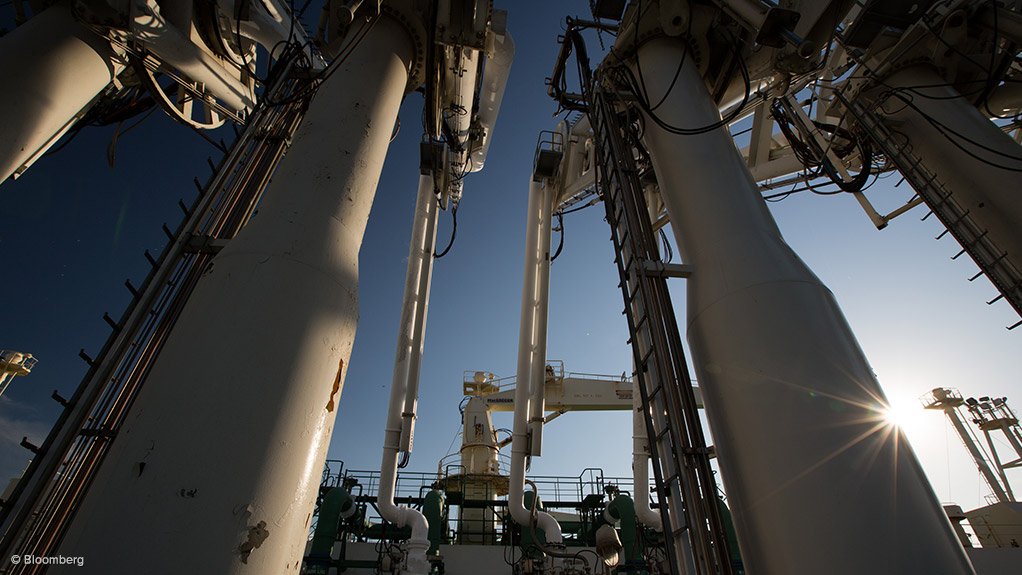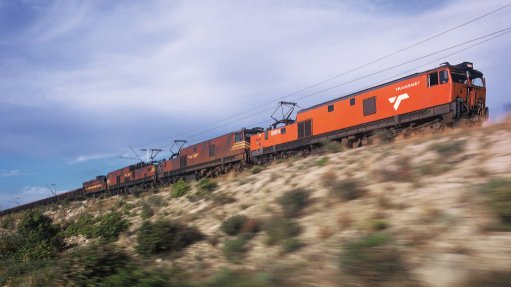WA changes domestic gas policy
PERTH (miningweekly.com) – The Australian Petroleum Production and Exploration Association (Appea) has warned that changes to the Western Australian Domestic Gas Policy would curb investment in new onshore gas supply, saying that the decision was "extremely disappointing".
The state government this week quietly updated its Domestic Gas Policy for the Perth and Canning Basins, preventing the export of onshore gas through the existing pipeline network.
The Department of Jobs, Tourism, Science and Innovation announced that in order to ensure domestic energy security, the Western Australian government would not consider any exemptions from the Domestic Gas Policy for onshore gas developments on the existing pipeline network to export liquefied natural gas (LNG), including those in the Perth basin.
Gas from the existing pipeline will be reserved for Western Australian industry and consumers only.
For the Canning basin, these gas resources are not connected to the existing pipeline network and as such a normal application of the Western Australian Domestic Gas Policy applies, which requires gas project developers to make available 15% of exports for the domestic market.
Appea said the government’s decision not to consider any exemptions from the Western Australian Domestic Gas Policy would discourage investment at a time when the state needed more gas supply to meet growing demand as coal shuts down and new mineral processing industries emerge.
Appea Western Australian director Caroline Cherry said the changes would make it harder for onshore proponents to access investment for projects and disincentivise producers from bringing new supply into the market.
“This is a disappointing outcome particularly given there is a Parliamentary Inquiry currently taking place into the effectiveness of the Dom Gas Policy and government has pre-empted any recommendations out of the inquiry process,” she said.
“Part of the ongoing inquiry was looking at the government’s role itself in ensuring adequate supply into the future and yet these pre-emptive policy changes without consultation will undermine investor confidence.”
In December, the Australian Energy Market Operator Western Australia Gas Statement of Opportunities found overall Western Australian domestic gas demand was forecast to increase from 1 099 TJ/d in 2023 to 1 278 TJ/d in 2032, at an average annual rate of 1.7%.
“Western Australia needs to bring more gas supply to the market to power WA’s growing resources sector and support the South West electricity system as coal-fired power is phased out,” Cherry said.
“But today’s changes, and the way they have been announced, are the opposite of what is needed and will only diminish new gas supply investment and the state’s path to net zero.”
In counterpoint, ASX-listed Buru Energy has welcomed the updated Domestic Gas Policy, saying the company’s phased development strategy for commercialising its Rafael discovery, in the Canning basin, worked in harmony with the policy.
Phase 1 of the Rafael project is a Kimberley-based hybrid gas-to-power and renewables project designed to meet the current and growing energy demands of the region.
“Buru welcomes the added certainty the updated Domestic Gas Policy brings to its Rafael gas and condensate development. The Canning basin is not connected to an existing pipeline network. By confirming the project is able to export gas in the future provides Buru with strategic optionality to develop Rafael, and significantly enhances the attractiveness of the project to potential development partners,” said Buru CEO Thomas Nador.
“This is positive for the development of Rafael and the Canning bBasin, positive for the region and positive for our shareholders.”
Comments
Press Office
Announcements
What's On
Subscribe to improve your user experience...
Option 1 (equivalent of R125 a month):
Receive a weekly copy of Creamer Media's Engineering News & Mining Weekly magazine
(print copy for those in South Africa and e-magazine for those outside of South Africa)
Receive daily email newsletters
Access to full search results
Access archive of magazine back copies
Access to Projects in Progress
Access to ONE Research Report of your choice in PDF format
Option 2 (equivalent of R375 a month):
All benefits from Option 1
PLUS
Access to Creamer Media's Research Channel Africa for ALL Research Reports, in PDF format, on various industrial and mining sectors
including Electricity; Water; Energy Transition; Hydrogen; Roads, Rail and Ports; Coal; Gold; Platinum; Battery Metals; etc.
Already a subscriber?
Forgotten your password?
Receive weekly copy of Creamer Media's Engineering News & Mining Weekly magazine (print copy for those in South Africa and e-magazine for those outside of South Africa)
➕
Recieve daily email newsletters
➕
Access to full search results
➕
Access archive of magazine back copies
➕
Access to Projects in Progress
➕
Access to ONE Research Report of your choice in PDF format
RESEARCH CHANNEL AFRICA
R4500 (equivalent of R375 a month)
SUBSCRIBEAll benefits from Option 1
➕
Access to Creamer Media's Research Channel Africa for ALL Research Reports on various industrial and mining sectors, in PDF format, including on:
Electricity
➕
Water
➕
Energy Transition
➕
Hydrogen
➕
Roads, Rail and Ports
➕
Coal
➕
Gold
➕
Platinum
➕
Battery Metals
➕
etc.
Receive all benefits from Option 1 or Option 2 delivered to numerous people at your company
➕
Multiple User names and Passwords for simultaneous log-ins
➕
Intranet integration access to all in your organisation




















